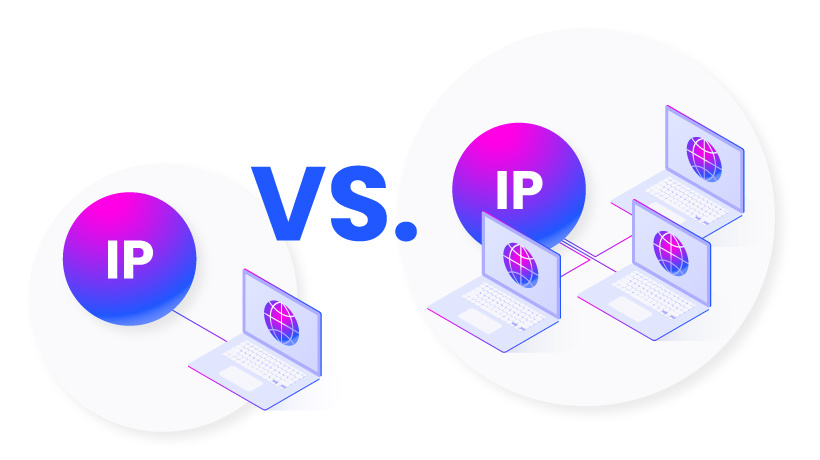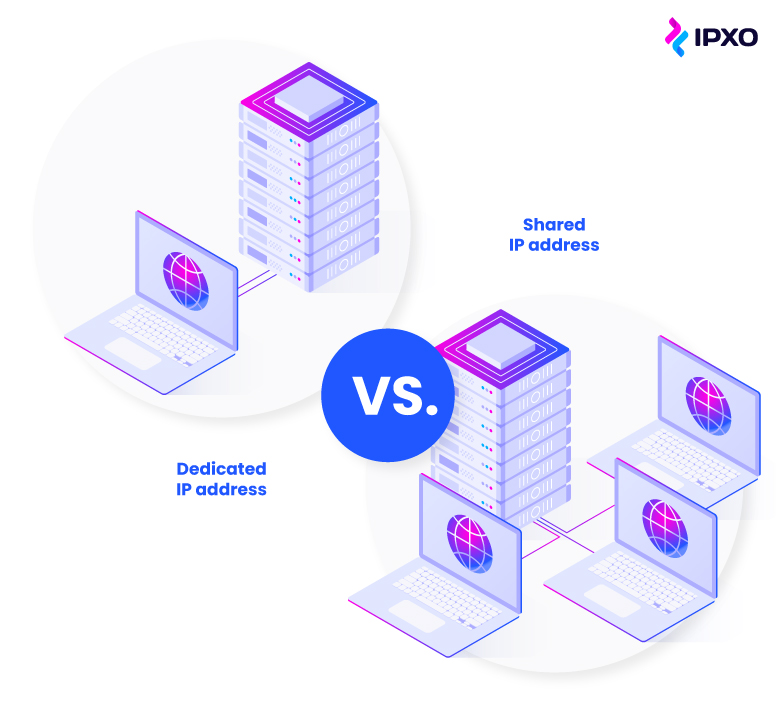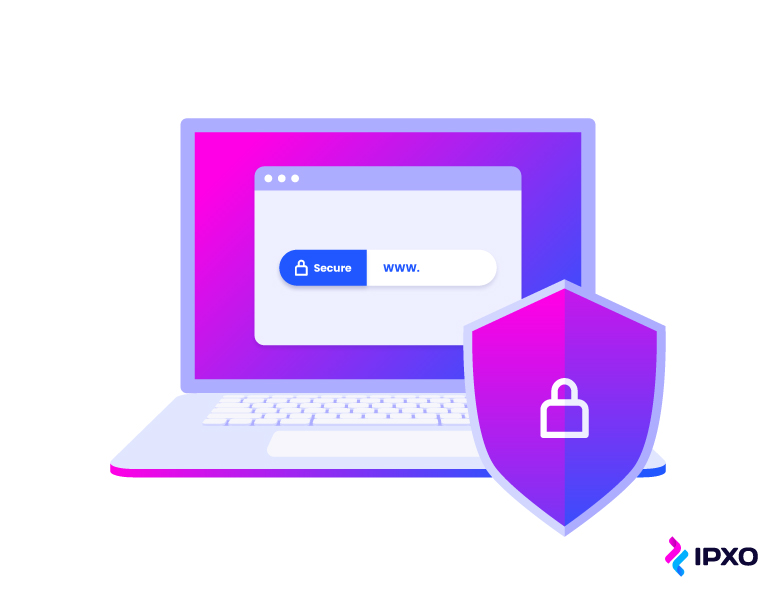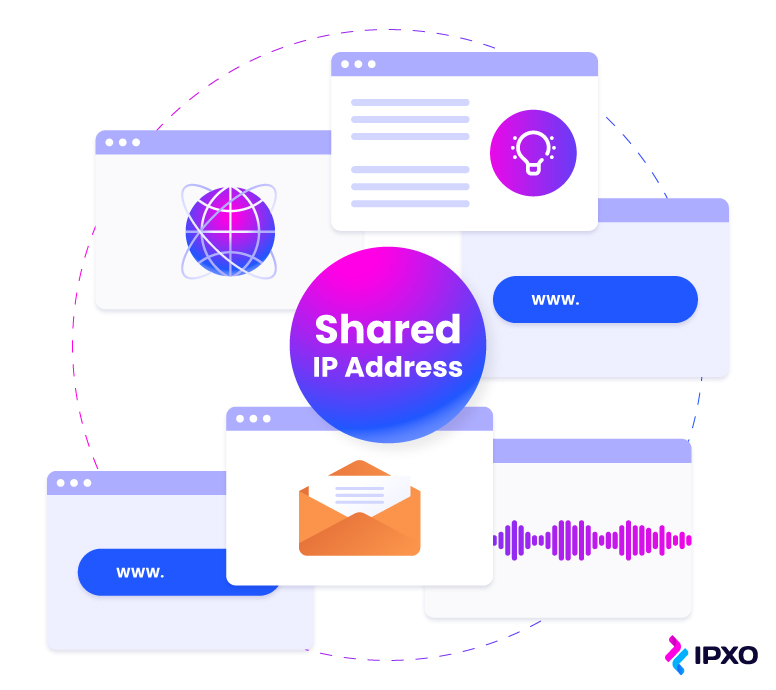Dedicated IP vs. Shared IP Addresses for Email Marketing
What are the roles of dedicated and shared IPs in email marketing? Which option offers more benefits for businesses? We have the answers for you.

You may already know that an Internet Protocol address, or simply an IP, uniquely identifies internet-connected devices. But did you know that the success of your marketing campaigns or website performance may depend on the type of an IP address you use? Usually, you would need to choose between a dedicated IP vs. shared IP, but how do you decide?
In this article, we discuss the key aspects to consider when choosing the right type of IP address for mail sending. Do you already know what type of addresses you need but do not know how or where to acquire them?
Unfortunately, global IPv4 scarcity hinders the acquisition of IP addresses and affects companies and their operations worldwide. We have been tackling this issue, and we can offer a solution to the problem. Keep reading to learn what the market has to put on the table.
Key takeaways
- Both a dedicated IP and a shared IP can facilitate email communications, but the choice between the two depends on the company’s budget and specific needs.
- Internet service providers’ trust is crucial when choosing IPs for successful marketing campaigns.
- IPv4 resource exhaustion slows down the growth of companies that offer dedicated or shared IPs to their customers.
- IP leasing enables companies to lease IP address assets they need quickly and cost-efficiently.
Dedicated IP addresses
A dedicated IP address is a single IP address assigned exclusively to one user who can use it for different purposes, for example, website hosting. If your website has a unique dedicated IP address, you can access the site by entering its IP address into your browser’s address bar. Of course, others cannot use your dedicated IP, which can improve your website’s speed, security and overall user experience.
You can obtain a dedicated IP address when you buy hosting services from a hosting service provider. Dedicated IPs are often part of a dedicated hosting solution, which also includes a dedicated server. It is possible to acquire a dedicated IP without a dedicated server as well. Some hosting companies also offer a dedicated IP address as an add-on feature with shared hosting plans.

Moreover, you can get a dedicated IP from email service providers (ESP), like MailChimp or HubSpot, that offer dedicated IP addresses for marketing campaigns. Additionally, an email service provider may help with the configuration of dedicated IPs and IP warmup to help you send the desired email volume.
Ultimately, if you want to take your email marketing campaigns and email deliverability to a higher level, you should consider acquiring a dedicated IP address. But there are a few things to consider before you acquire dedicated IP addresses for mail advertising. Let’s discuss them.
IP reputation relies on one sender
If you use a dedicated IP address to send emails for your email campaigns, you are the only one responsible for the IP reputation of your resource. Why is that important? If you have a good reputation with internet service providers (ISP), your emails will reach the recipients and will not end up in a spam folder. On the other hand, a poor reputation might lead to various IP-related issues, like IP blocklisting.
How can you ensure a solid reputation with ISPs? First, when you receive a dedicated IP, you need to prove yourself as a trustworthy sender. It is necessary to warm up your new IP address because dedicated IPs do not have an email sending history and IP credibility yet. You can successfully establish a strong reputation by gradually increasing the number of emails you send from a particular IP.
Undoubtedly, when you use a dedicated IP address, you must carefully track your email marketing metrics. Particularly, you need to check if your subscribers engage with your emails or if your messages go straight to the spam folder. Why? High engagement metrics show the success of your marketing campaign and guarantee a spotless reputation with ISPs.
Secure emailing and troubleshooting
Dedicated IPs may provide more control over the security of emails you send to your subscribers. How? You can use a Secure Socket Layer (SSL) certificate. If you configure your email server with an SSL certificate, it will establish a secure connection between the server and the browser. Therefore, you will send your newsletters safely and efficiently, protecting them from third-party access.
Moreover, a dedicated IP can reduce the chances of IP blocklisting. How? If you are the only one using an IP address, and you are not using it for malicious purposes, ISPs are unlikely to block it. But if your IP ends up on a blocklist, it will be easier to track down IP issues that led to this because you are the only one who has used the blocked IP. Unless, of course, it was hijacked by a malicious party.

Dedicated IP address price
Are you planning your budget carefully? Dedicated IPs may go for up to $250 per month, depending on the hosting provider. Needless to say, not everyone can invest that much money in dedicated IP resources. Furthermore, it is crucial to take into account the possibility that you may need more IPs in the future, thus calling for even bigger investments.
Unfortunately, due to IPv4 exhaustion, it is getting increasingly difficult for hosting providers to offer an unlimited number of dedicated IPs at affordable prices. How can companies acquire the assets they need for their business? We tackle this question in the last section of the article, so keep reading.
Shared IP addresses
Unlike dedicated IPs, shared IPs are assigned to multiple domains or websites. This means many users use one IP address. When different sites have the same IP, the Domain Name System (DNS) may take a few seconds to identify which website the user requests. Also, if one of the websites on a shared IP receives a lot of traffic, this can slow down the site performance of other tenants.
Frequently, smaller businesses utilize a managed WordPress host platform or shared hosting providers’ services when using shared IPs. In fact, hosting providers often offer shared IPs for WordPress sites as part of shared hosting plans. That said, if you use a shared IP address, that does not mean you automatically use shared hosting services.
Undeniably, this type of hosting is primarily attractive because of cost efficiency. If you use shared hosting, you might share not only IPs but also other server resources, like server hardware, disc space and bandwidth. Unfortunately, not all providers can ensure that you receive reputable assets, so make sure you choose a trustworthy one.
From a security standpoint, shared IPs may provide equal security to emails as dedicated IPs. That depends on whether or not the providers support Server Name Identification (SNI) technology that allows using multiple SSL certificates on a single shared IP address. SSLs provide additional protection to websites and emails against different cyberthreats.

And when it comes to email sender reputation, you share the same IP address with other senders, which means that all users can affect it. This may sound like a disadvantage, but not necessarily.
How other senders can affect IP reputation
As you now know, when you use a shared IP address, you share email sending reputation with other senders. This means that your email deliverability depends on the sending habits of others. For example, if other senders use a particular IP for malicious purposes, like spamming, it is likely that they can jeopardize your email metrics.
On the other hand, if other email senders have good IP credibility, you can benefit from it and send your emails immediately without IP warming. Simultaneously, if you employ good emailing practices yourself, you can help others achieve their emailing goals.
It is also worth noting that reputable shared IP providers have the necessary tools to control abusive email senders. They can even ensure that you receive an IP address from an IP pool with a good reputation with ISPs and mailbox providers. Moreover, they can help you combat IP blocklisting and solve any security issues that might occur.
Shared IP address price
You don’t mind sharing resources with other companies? Perhaps you operate content delivery networks that use the same IPs for multiple websites? You can get a shared address for just a few dollars a month, depending on the provider and its plans, storage space, bandwidth and other additional features.
A lower shared IP address price helps small and medium-sized companies start hosting websites and kick-start their businesses without investing a ton of money. The best part is that even cheap hosting plans include amazing features that allow companies to control their environments and ensure efficient management of their operations.
We must not dismiss the fact that hosting and email marketing companies that offer IP sharing services can significantly contribute to IPv4 exhaustion alleviation as well. How? Providing the same address for several users can save valuable IP address resources and enable more companies to use the assets they need in a sustainable way.

Which IP setup should you choose?
If you are still choosing between dedicated or shared IP addresses for your emailing campaigns, consider these several aspects:
- IP address price and your budget
- The number of emails you send
- Partial or full reputation control
First, you must evaluate your budget and decide how much you can dedicate to the IP resources you require. If you are willing to pay more, you may choose a dedicated IP address. But if you want to save money for other business needs, you might decide to opt for a shared IP address.
Another crucial aspect to take into account is your send volume. Dedicated IPs are intended for high-volume senders who send thousands of emails to many recipients daily, weekly or monthly. It is perfectly fine to use a shared address for large-volume campaigns as well.
That said, shared IPs are more suitable for low-volume senders without a long list of engaged subscribers and a consistent emailing schedule. If you are starting a new business or launching your first marketing campaign, a shared address might offer a good starting point.
Sender reputation is one more thing to think about before choosing an IP for your marketing campaigns. If you want full control of the sender’s reputation and send email from a unique IP address, consider a dedicated IP for your email campaigns. This way, your ESP won’t put you in the same pool with similar-sized senders, and only you will be responsible for your emailing practices.
Keep in mind, however, that if you choose a shared address, you will not have full control over your sender reputation. As you now know, because many users share the same IP address from the shared IP pool, your email deliverability and trustworthiness from the ISPs’ perspective depend on the communal senders’ behavior.
IP leasing for email marketing
Are you looking for IPv4 addresses to expand your business? Do you want to offer more shared and dedicated IPs for your customers for hosting and email marketing purposes? Perhaps your company needs IP assets to run marketing campaigns?
Due to IPv4 scarcity, you may run into the problem of acquiring IPs in a cost-efficient and sustainable way. Depending on how many IPs you require, the average $45-$50 price per IP address may not fit into your current budget. Fortunately, IP leasing may offer the ultimate answer you are looking for.
IP leasing enables you to acquire IPs quickly and cost-efficiently compared to IP buying. You don’t need to invest a fortune upfront. In fact, you can acquire the assets you need and save money for other business needs at the same time. On average, an IPv4 address can be leased for around $0.50, which, of course, offers a much more sustainable way to scale any business.

Moreover, if you lease IPv4 addresses, you can get the resources almost immediately and assign them to any infrastructure. This means you can support or expand your services and ensure a better customer experience.
IPXO Marketplace – the world’s first fully automated IP lease and monetization platform – offers more than 3 million IPv4 addresses from all Regional Internet Registries for all business needs. We implement security controls and best KYC practices to guarantee that you pay only for reputable assets from verified holders.
Soon, the Marketplace will introduce the Commitments feature that will allow to secure long-term lease contracts at the best lease prices, thus making IP leasing even more beneficial and accessible. If you are interested in long-term leasing, do not hesitate to contact us, and we will share more details.
Conclusion
IP addresses are crucial for successful email campaigns and hosting service providers. Shared and dedicated IP addresses have their downsides and advantages, and the ultimate choice between the two depends on particular business requirements. Of course, while dedicated IPs cost more, they can offer more control and flexibility.
Unfortunately, in the wake of global IPv4 exhaustion, companies that provide dedicated and shared IP address services for businesses worldwide might find it challenging to acquire valuable IP assets. What can they do to get internet numbers quickly and cost-efficiently?
Companies that require IP addresses for hosting and email marketing services can lease the required number of IPv4 addresses to ensure that their clients always reach business goals.
Are you interested in IP address leasing? Want to know how we can help your business grow? Wait no more and book a demo to see our platform in action. We will gladly address any concerns and questions you might have.
About the author
Table of contents
Key takeaways
Dedicated IP addresses
IP reputation relies on one sender
Secure emailing and troubleshooting
Dedicated IP address price
Shared IP addresses
How other senders can affect IP reputation
Shared IP address price
Which IP setup should you choose?
IP leasing for email marketing
Conclusion
Related reading

IP Warming for Email Campaigns: What Is It and Why Is It Important?
What is IP address warming? How does it work? What kinds of challenges can you face when warming IPs? How can you benefit from this practice? We've got all…
Read more
IPv4 Packet Header: Format and Structure
When you think about it, the IPv4 packet format is truly fascinating. Learn about the elements at play with this comprehensive guide.
Read more
First Came IPv4, Then IPv6. What Happened to IPv5?
IPv4 and IPv6 are the only two versions of the Internet Protocol in use. Discover what happened to IPv5 and whether or not the current versions of the Internet…
Read moreSubscribe to the IPXO email and don’t miss any news!
